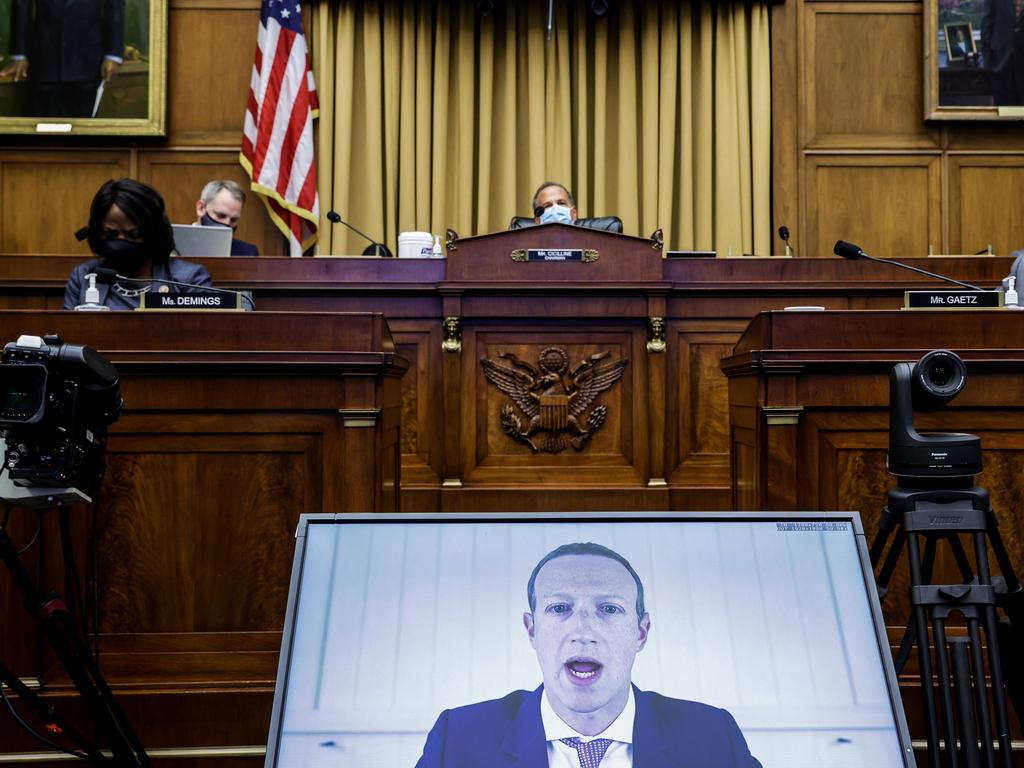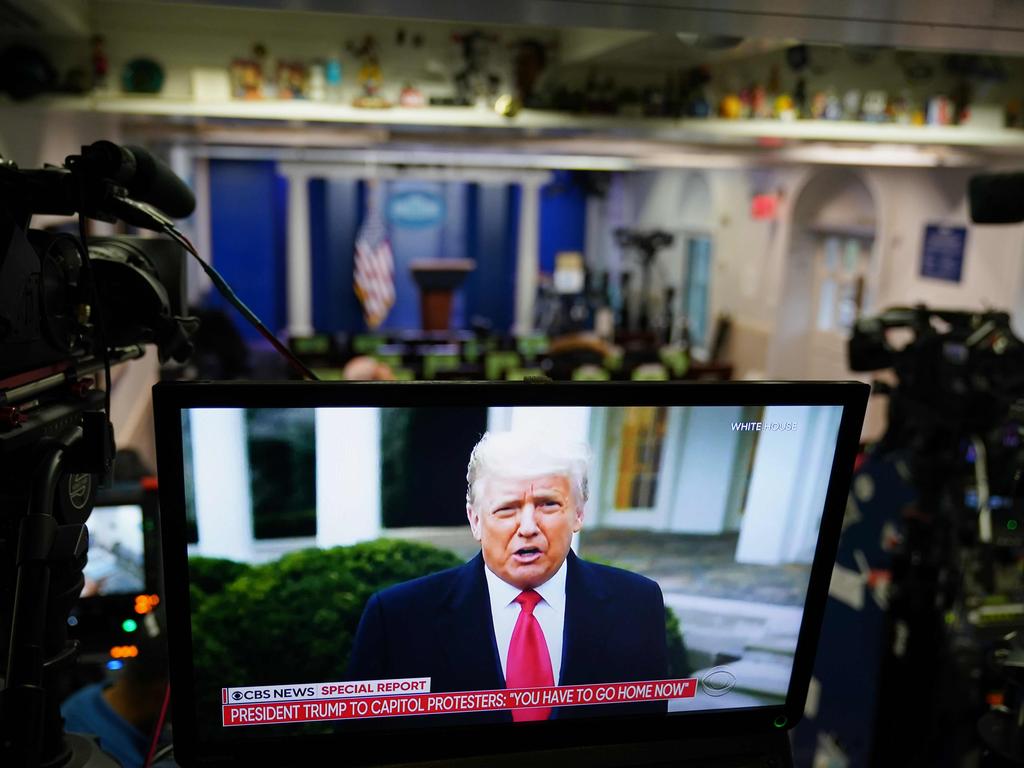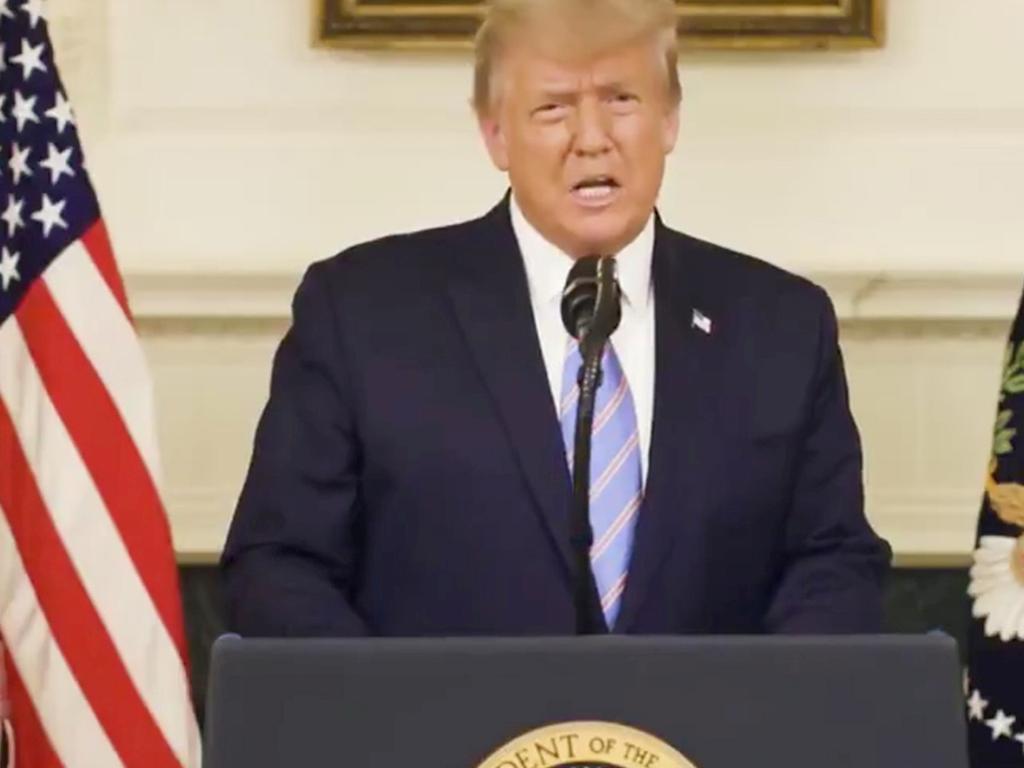A belated attack of conscience as Big Tech finally wakes up to Trump
Social media firms have turned on their tweeter-in-chief but regulation looms for the echo chambers that helped disseminate his lies.
Silicon Valley woke up on Friday. After years of allowing hatred, misinformation and propaganda to spew into the world, the tech giants made a flurry of stunning moves to expunge some of the most dangerous elements, which, in their estimation, included America’s President.
The catalysing event was the attack on the US Capitol, perpetrated by a mob the President whipped up with false allegations that the election had been “stolen”. Twitter froze Trump’s account for 12 hours on Wednesday then shut it down for good on Friday after two tweets — one saying he would not attend Joe Biden’s inauguration and the other warning against “disrespecting” the “patriots” who supported him. Twitter said the posts, implying a lack of faith in the election results, violated its “incitement of violence” policy in the context of “horrific events this week”.
For years, critics had demanded that Twitter remove its most famous user. Jack Dorsey, the chief executive, pushed the nuclear button after hundreds of his employees demanded it. They wrote: “We play an unprecedented role in civil society and the world’s eyes are upon us. Our decisions this week will cement our place in history, for better or worse.”
But Twitter’s move raises vexing questions: how will people react to Silicon Valley’s decision to shut down their gathering places, to cast their leader into the wilderness? How do you govern the web when almost everyone is on it, and on it all the time? Having booted out Trump, what will Twitter do the next time a prominent person, or indeed anyone, crosses the line?
Trump’s defenestration was only one part of a broader industry effort that will have far-reaching consequences for Big Tech and the internet itself. Last week Facebook suspended Trump’s account “at least” until January 20, when Joe Biden will be sworn in. Twitter removed several accounts of prominent Trump supporters including Sidney Powell, one of the lawyers who led his attempt to overturn the election in the courts, and QAnon conspiracy theorists.
Outraged conservatives accused Twitter of “censorship” and rushed to apps such as Gab and Parler, an anything-goes conservative social network where many of those who attacked the US Capitol co-ordinated the assault (they used Twitter and Facebook too).
Google suspended Parler from its app store and on Friday gave it 24 hours to come up with a “robust” content moderation policy. Apple on Sunday removed Parler from its app store, and Amazon Web Services said it was suspending Parler’s access to its hosting services, potentially driving the service offline unless it can find a new provider.
The two-year-old app has become a favourite of the right-wing senator Ted Cruz, neo-Nazis, white nationalist groups such as the Proud Boys and provocateurs including Milo Yiannopoulos and Katie Hopkins, the British commentator who once compared immigrants to “cockroaches”. Parler’s 27-year-old chief executive, John Matze, said in October: “Hate speech is free speech. We don’t have people in our office who have a ‘ban’ button.”
The app enjoyed a surge of popularity this year as Facebook and Twitter became more aggressive in their policing efforts by removing posts, kicking people off or slapping warning labels on content.
Hany Farid, a professor at the University of California, Berkeley, argued that Big Tech should receive little credit for the moves. “This is what it takes, an armed insurrection at the Capitol, and then the companies are like, ‘OK, maybe this is enough’,” he said. “It’s not like this was not foreseen. This is what we’ve been building up to. This is the absolute bare minimum they could have done.”
Indeed, it is hard not to be cynical about the timing of Silicon Valley’s attack of conscience — 10 days before Trump leaves office, his grip on power slipping. Say what you will about the President, he was box office, an endless source of fascination, and clicks. The industry profited from his obsessive use of its tools. On Twitter alone, Trump’s followers over the past four years rose sixfold to 88 million. As part of the bargain, they let him ride roughshod over their “community guidelines”.
The storming of the Capitol building may come to be seen as the moment things finally changed for social media and how it is regulated. It laid bare the danger it has unleashed — a world where we are algorithmically funnelled into echo chambers that stir our righteous anger and smother empathy for those who think differently. A world with few shared truths.
For years, the industry has clung to the bizarre notion that it bears no responsibility for the fallout. In fact, that protection is enshrined in American law under section 230 of the Communications Decency Act of 1996. The statute provides any website a legal shield for what users post, be it terrorist recruitment videos or hate speech, propaganda or content such as the self-harm posts that contributed to the suicide of the 14-year-old British schoolgirl Molly Russell in 2017.
It is not an exaggeration to say section 230 was the rocket fuel that propelled Facebook, YouTube and Twitter into the stratosphere. What other industry was handed such a gift — legal immunity even if your product is destructive, or worse, deadly? Imagine if the pharmaceutical industry got that.
Reforming the law has become one of the few goals that Republicans and Democrats share, although for different reasons. Republicans, claiming anti-conservative bias, want less “censorship”. Democrats, alarmed at Trump’s ability to use social media bullhorns to spread lies and inflame millions of his followers, want more. The president-elect has called for an overhaul of the law. Farid said last week’s events would finally see reforms enacted. “It’s the straw that breaks the camel’s back,” he said.
There is one other, less talked-about aspect to this story: the outgoing President just lost a huge business opportunity. Unlike Barack Obama, Trump did not use the official @POTUS Twitter handle once he took office. (After his ban last week, the President tried to use that account. Twitter deleted his tweets.)
Trump had leveraged the prominence of his office to build a huge — and highly valuable — audience through his @realDonaldTrump account, which he expected to take with him after he left the White House.
What is inarguable is that Trump was a consequential president. And in his final days in office, he may have added another notch to his complicated legacy: bringing the curtain down on the first phase of our social media age.







To join the conversation, please log in. Don't have an account? Register
Join the conversation, you are commenting as Logout